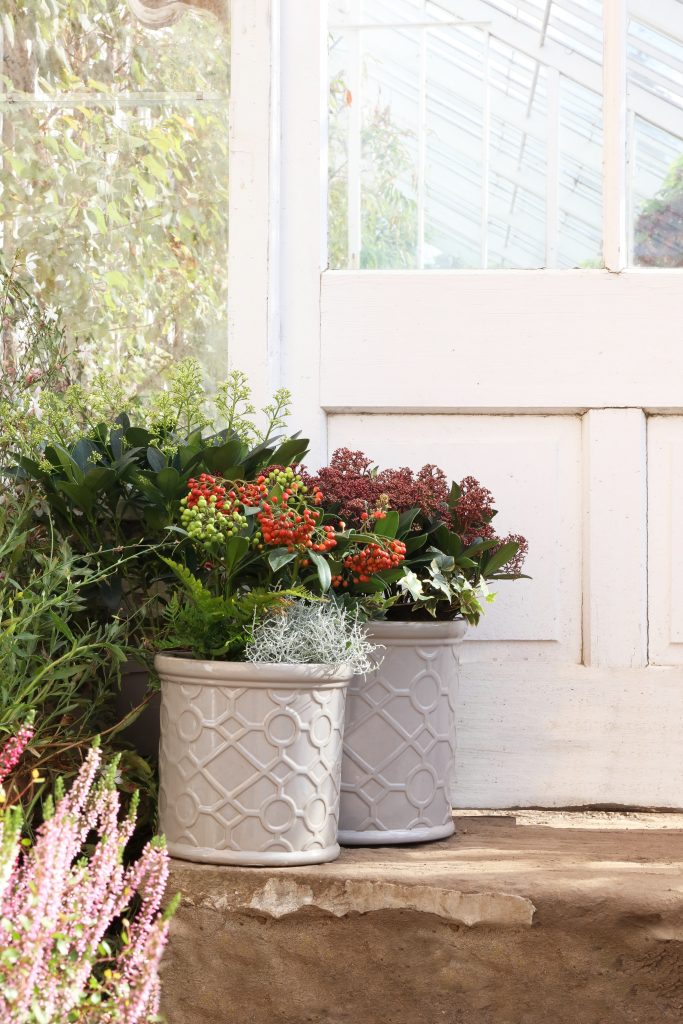
The best business & lifestyle stories from the North East and Yorkshire sent directly to you
As temperatures drop and the frost settles in, Dobbies, the UK’s leading garden centre, has listed out the winter jobs we can be doing to get our gardens looking their best and prepare them for a blooming 2024.
Whether you’re looking to introduce colour to containers for the festive period, tidy up your garden for the new year, grow your own fruit and veg, or prepare your outdoor space for spring, Dobbies’ Horticultural Director, Marcus Eyles has outlined how to get the most out of your garden this winter.
Find out what gardening jobs you should be doing now and appreciate the beauty of the outdoors regardless of the season.
Tidy Up
When it comes to tidying up our gardens in winter, Marcus says we should be mindful not to clear too much away. It can be tempting to completely get rid of all garden debris however, leaving a layer of organic matter on the surface of beds and borders and underneath hedges and trees will give wildlife a place to shelter from the elements. Stacking logs together in a pile will also provide a sanctuary for animals like hedgehogs during the colder winter months.
Another important job for during the winter months is pruning roses to ensure any harsh weather doesn’t interfere too much with them. Marcus recommends taking the stems down by half to stop the wind catching plants as much over winter, and then in spring, prune back fresh new shoots which will give nice structure for the plants ready to flower next year. Marcus says you shouldn’t need to mow your lawn in winter however, you should remove and compost any fallen dead leaves as these will block air and sunlight, two things that grass needs to survive.

Protect Plants
Marcus says that plant protection is one of the most important parts of your winter gardening checklist and will ensure your plants survive the season. To ensure good soil health and protect your plants’ roots when temperatures drop, Marcus advises mulching well with Bloomin Amazing or Dobbies’ award-winning peat free compost. Dobbies’ own brand bark landscape can also be used as an extra layer of protection for plants during the colder months and is priced at just £8.99 for 100L.
Marcus says that exotic plants and varieties including Cordylines, Ceanothus and Phormiums will benefit from frost protection fleece in winter. For extra protection, Marcus advises placing tender plant varieties like Pelargoniums and Fuchsias in a sealed grow house or cold frame during the colder months.
Instant winter colour
Refreshing your containers and hanging baskets is a good way to give your winter garden a burst of colour and Marcus says that the Conifers, winter Heathers and Ivy will all produce a beautiful display and stand up to cold weather. In addition to these, Callunas and Ericas are great for winter pots as they’re frost resistant and work well to frame your doorway all season long.
For those working with compact spaces, Marcus says Cyclamen can be planted in late autumn and works well in window boxes and balcony displays for a pop of vibrancy, proving you don’t need a garden to enjoy winter colour.
For a blooming display that will flower right through until spring, Marcus suggests planting winter-flowering Violas and Pansies now in either pots, beds or borders. To ensure they don’t get waterlogged, Marcus advises planting in a free draining soil and if using containers, put a layer of stones or gravel into the bottom of your pot.

Grow your own
Contrary to what people might think, Marcus notes that it’s possible to continue growing your own produce in the winter months, but there are a few steps you should take to ensure a good crop. Herbs like Mint, Rosemary, Sage and Thyme can all be grown on a windowsill ready for use in winter dishes, and alleviate the need for a dedicated vegetable patch.
For those who have a greenhouse or sealed grow house, Marcus says it’s easy to grow salad crops year-round and microgreens can be germinated in as quickly as three weeks. To combat the shorter days, supplementary lighting can be used to give produce a boost and the warmth it needs to grow. In terms of what can be harvested in time for Christmas dinner, Marcus says kale, carrots, potatoes and spinach will be ready in late autumn and as long as preserved properly indoors, will make a tasty addition to Christmas meals.
Water storage
When it comes to being more sustainable in the garden, Marcus says that winter is a fantastic time to collect rainfall in water butts for use in the summer months. Any shed, greenhouse or garage can be used to collect water and conserve it for next summer as long as it has gutters and a down pipe to a drain at ground level.
Doing this will help you reduce water usage in the event of a long dry spell next summer and Marcus notes that rainwater is actually better for your plants as it has a lower pH than water from the mains.